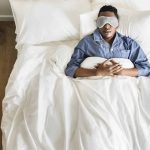PD Avengers, an alliance of more than 7,000 people and 150 partner organizations in 98 countries affected by Parkinson’s disease, launched a Surveying Late Evening Effects of Parkinson’s (SLEEP) survey to delve into the often-overlooked realities of how Parkinson’s disease impacts sleep.
The survey also aims to shed light on this lesser-understood symptom and challenges of the condition. Insomnia, restless legs syndrome, and REM sleep behavior disorder are just a few issues people living with Parkinson’s disease may contend with.
Parkinson’s disease is the fastest-growing brain disorder in the world and impacts nearly 10 million people. It is often characterized by tremors, muscle rigidity, slowness of movement, and difficulty with balance. Parkinson’s disease is not just a motor disorder that affects movement. In fact, there are over 40 potential symptoms that can impact a person’s quality of life, including issues with sleep, pain, gut health, and constipation.
While tremors and other motor symptoms are well-known, many other symptoms, such as sleep and depression can be invisible to others, making those with the disease feel even more isolated. “What was once a tranquil period of rest transforms into a battleground where the complexities of the condition manifest with remarkable intensity, disrupting not just sleep but also overall well-being across motor symptoms and non-motor symptoms alike,” according to a release from PD Avengers.
Through May 15, the SLEEP survey will be made available online in English, French, and Spanish. People with Parkinson’s disease and their care partners are encouraged to share their input and experiences around sleep and symptoms that may be more pronounced during the night.
The timeline of the survey encompasses the entirety of April, designated as Parkinson’s Awareness Month. Of particular significance is April 11, World Parkinson’s Day, when attention will be directed toward spotlighting symptoms and the impact of Parkinson’s disease on those living with it and their care partners.
The SLEEP survey offers an opportunity to share personal experiences and contribute to the collective understanding of Parkinson’s disease-related symptoms and disturbances during sleep and nighttime.
Photo 261617472 © Sebnem Ragiboglu | Dreamstime.com




Leave a Reply